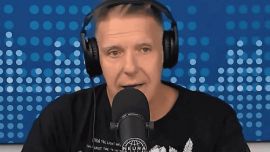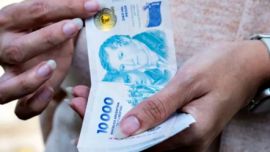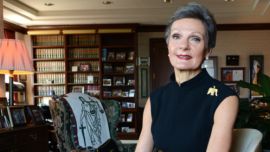Brazilian President Luiz Inácio Lula da Silva called for South American unity Tuesday as he welcomed fellow leaders for a "retreat" to strengthen ties in a region where left-wing governments are newly back in style.
Eleven of the continent's 12 heads of state – including President Alberto Fernández – attended the summit in Brasília, the first of its kind in nearly a decade, which Lula said turned the page on an era of divisions.
"We let ideology divide us and interrupt our efforts to integrate. We abandoned our channels of dialogue and our mechanisms of cooperation, and we all lost because of it," the veteran leftist, who returned to power in January after defeating far-right ex-president Jair Bolsonaro (2019-2022), said in his opening remarks.
The 77-year-old ex-metalworker, who first led Brazil from 2003 to 2010, took a jab at Bolsonaro, saying his predecessor –– who closely allied himself with US ex-president Donald Trump – had "closed our doors to historic partners" and "chosen isolationism."
The meeting also included fellow recently elected leftists Gabriel Boric of Chile and Gustavo Petro of Colombia.
"Latin America must play a united role and have a united voice," Petro told journalists as he arrived at Brazilian foreign ministry headquarters for the gathering.
The only South American head of state absent was Peruvian President Dina Boluarte, who was represented by Cabinet Chief Alberto Otarola.
'New pink tide'
Lula is a self-declared fan of international cooperation and regional integration, which featured prominently in his first presidency, and is keen to reboot stalled South American ties.
This is the first summit of regional leaders since 2014 in Quito, Ecuador, at a gathering of UNASUR, a continental bloc launched in 2008 by Lula and late Venezuelan president Hugo Chávez.
That was the moment of Latin America's so-called "pink tide," when a wave of left-wing governments led the region.
Now, some political analysts are talking of a "new pink tide" in South America, with the recent elections of Lula, Boric and Petro.
Lula wants to get the region cooperating again.
His government has touted projects such as a "Bi-Oceanic Corridor," a transportation artery to enable countries to ship goods across the continent overland instead of by sea.
The summit is a small, "more relaxed" gathering, with only the leaders, their foreign ministers and select advisers in the room, a Brazilian diplomatic source told AFP.
The leaders are each scheduled to address the summit in the morning, then hold an informal discussion session before Lula hosts them for dinner at his official residence, the Alvorada Palace.
Lula kicked things off Monday by meeting with Venezuelan counterpart Nicolás Maduro – Chávez's hand-picked successor – restoring a relationship that had been severed under Bolsonaro, who labelled the socialist leader a "dictator."
"This marks the beginning of Maduro's return" on the regional stage, Lula said.
'Meeting itself good news'
"Groundbreaking visions" for South America's future are unlikely to emerge from the summit, said international relations specialist Oliver Stuenkel.
But "the meeting itself is good news," he wrote in Americas Quarterly.
"Even a basic dialogue between heads of state is genuine progress after Brazil largely retreated from its neighbourhood during the Bolsonaro years," he said.
Since Lula defeated Bolsonaro in a divisive election to return to office in January, he has been overhauling Brazil's foreign policy, vowing to seek friendly relations across the board and cultivating closer ties with partners as disparate as China and US President Joe Biden's administration.
But he has drawn attacks from opponents of being overly cozy with Russia, China and Latin American leftists such as Maduro and Nicaragua's Daniel Ortega, both accused of human rights violations.
He has also raised eyebrows at times in the West for comments such as his criticism of the United States and Europe for helping Ukraine fight off Russia's invasion.
related news
by Ramon Sahmkow, AFP






















Comments